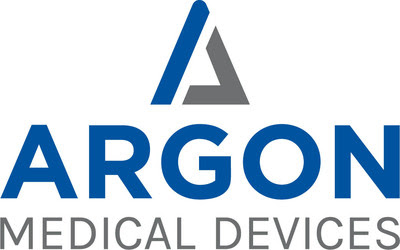PARIS – The chaotic aftermath of Washington’s troop withdrawal from Afghanistan is being followed with a mix of trepidation and glee thousands of kilometers away — in Africa’s Sahel, where another foreign power, France, also vows to wind down its long-running counterinsurgency operation, at least in its present form.
As the United States continued to evacuate thousands of citizens and allies at Kabul’s airport this week, dozens of civilians and soldiers were killed in several Islamist attacks across a vast and dangerous three-border region that straddles Niger, Burkina Faso and Mali. It was just another marker in a protracted fight that has killed thousands, displaced 2 million and — like Afghanistan — is considered by some as unwinnable.
If there many stark differences between America’s war in Afghanistan and France’s in the Sahel — from their size and nature to their Islamist targets — there are also haunting similarities, analysts say.
Both involve yearslong foreign involvement in countries with weak and unstable governments. Both operations have struggled against troop fatigue, casualties, and dwindling support at home. Both are against Islamist groups which, many say, are patiently confident they will outlast their enemy.
“If there’s any lesson to draw, it’s that indefinite military solutions aren’t sustainable,” said Bakary Sambe, Senegal-based director of the Timbuktu Institute think tank.
“Sooner or later, there’s got to be an exit,” he said.
Staying put
Unlike the U.S., France for now has no intention of withdrawing from the Sahel, a vast area below the Sahara. It will, however, soon begin decreasing its 5,100-troop Barkhane operation, the linchpin of a regional counterterrorist fight spanning five West and Central African countries.
Nor was the Sahel mentioned in French President Emmanuel Macron’s first major response to the Taliban’s swift victory. Rather, he warned against resurgent terrorism in Afghanistan and illegal migration to Europe.
Yet it may be hard to compartmentalize.
“I think the French cannot afford not to look at what’s going on in Afghanistan when preparing for the very gradual drawdown” of Barkhane forces, said University of Kent conflict expert Yvan Guichaoua.
Images of mayhem and anguish at Kabul’s airport and elsewhere “is something that certainly shocked French officials,” he said, “and maybe made them think about the circumstances in which they are going to leave.”
Others are not so sure.
“I don’t think [the French] are drawing this kind of direct parallel,” between Afghanistan and the Sahel, said Jean-Herve Jezequel, Sahel Project director for the International Crisis Group policy group.
“Maybe this is a mistake. But the French are downsizing, they’re not withdrawing. They’re still the biggest military force in the region,” he said.
Different — but also echoes of Afghanistan
Macron announced in July France’s Barkhane operation would formally end early next year, with troops shrinking to up to half their current numbers and shifted to other anti-terrorist missions — notably forming backbone of the European Union’s fledgling Takuba force, currently aimed at helping Mali fight terrorism in the Sahel region.
Yet France’s revamped mission with its narrowed goals — counterterrorism and beefing up local forces rather than securing large tracts of territory — comes after mounting casualties, fading support at home, a spreading insurgency and growing anti-French sentiment in some Sahel nations.
Born in 2013, France’s military intervention in that region is half as old as the U.S. war in Afghanistan was, with a fraction of its scope and troop losses. Originally aimed to fight jihadist groups in Mali, it later expanded to four other vulnerable former colonies — Niger, Chad, Burkina Faso and Mauritania — that together now form a regional G5 Sahel counterinsurgency operation. Meanwhile, the jihadists are moving south, into parts of sub-Saharan Africa.
While Paris pushes for greater governance and democracy — in June, Macron briefly suspended operations in Mali after its second coup in a year — the nation-building efforts seen in Afghanistan are not likely, Crisis Watch’s Jezequel said.
“It’s a failure,” he added. “But it’s a failure of the Sahel states.”
Today, some of those states, especially Mali, are watching Afghanistan’s swift unraveling with alarm, experts say, even as extremists celebrate.
The Sahel’s myriad jihadi groups lack the deep roots and experience of the Taliban, which held power in the 1990s. Yet, especially Western recognition of Afghanistan’s new rulers “will comfort the idea that the Islamist alternative is possible,” Sambe said.
“It will galvanize radical Islamist groups—and that’s the fear,” he said.
The European Union’s executive arm said Saturday it does not recognize the Taliban.
Moving forward
For France, moving forward in the Sahel means focusing southward, where the insurgency has spread, and beefing up the Takuba Task Force. Nearly a dozen European countries, including Estonia, Italy, Denmark and non-EU-member Norway have joined or promised to take part in the military mission. But many others remain on the sidelines, including Germany.
“The fear of many European countries is to commit troops and then be confronted with a fiasco or death of soldiers,” Guichaoua said.
However, he and others add, French persuasion, from raising fears of conflict-driven migration to Europe, to offering military support in other areas, appears to be working.
Not under French consideration, though, is any dialogue with extremists — an effort controversially tried with the Taliban that is earning support among some Sahel authorities, at least when it comes to homegrown groups.
“The French have considered this a red line,” Guichaoua said. “Because that would mean somewhat that French soldiers died for nothing. But it is on the agenda for Malian authorities.”
Local-level negotiations with jihadi groups have long taken place, he said — to gain access to markets, for example, or get hostages released — but not high-level ones, “and the main reason is France.”
For their part, the Sahel’s extremists appear willing to wait, as the Taliban did in Afghanistan.
Both, Guichaoua said, are convinced foreign powers will eventually leave, so time is on their side.
Source: Voice of America


